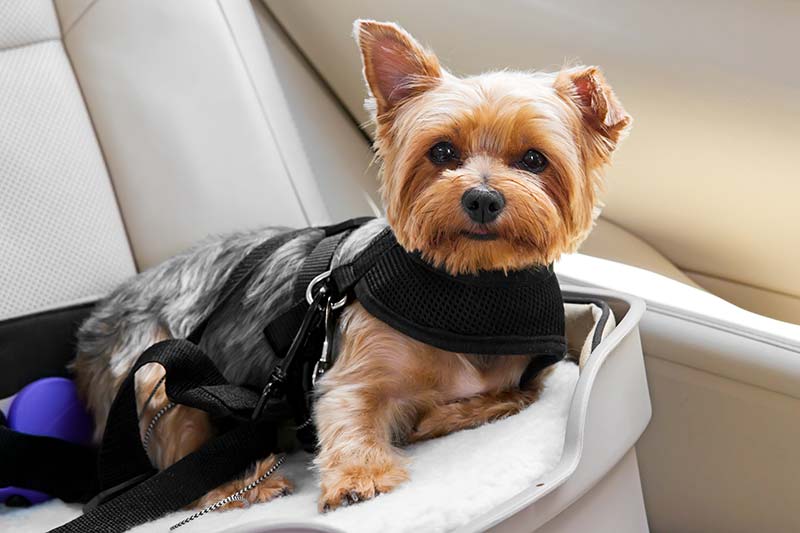
Owners of special needs pets are unique. Looking beyond certain disabilities, these people open their homes and their hearts, providing comfort and love to these highly adaptable animals. While pets with disabilities sometimes require higher levels of care, in many ways, they’re just like other pets.
However, when it comes to leaving home for the holidays, there are a few important distinctions. Travel with a special needs pet can be done, and when they’re protected from harm, fear, and insecurity, it can even be fun!
Gold Star
Even if you’re not preparing for air travel, it’s a good idea to have your pet examined before you leave home. Travel with a special needs pet is definitely less fun when they’re uncomfortable or stressed out, and we can help determine whether they can handle the demands.
Airlines do require a health certificate that shows your pet is fully vaccinated and healthy enough for flying. Certainly, keeping your pet in the cabin with you is preferable, but larger animals fly as unaccompanied cargo. While this area is temperature controlled and pressurized like the cabin, these pets don’t receive constant attention.
Conduct thorough research before making reservations, and reach out to the carrier with any questions or concerns.
Tick-Tock
All animals are creatures of habit. Deviating from their everyday routine can be highly disruptive, which is one reason traveling with a special needs pet gives some owners cause for concern. However, as long as meal times, bathroom breaks, and sleeping schedules remain intact, pets should do fairly well on a trip. Obviously, this is much easier to achieve if you’re in control behind the wheel of your own car.
Navigating a New Environment
Travel with a special needs pet involves many new sights, smells, sounds, and terrain. While most animals will be fine with these changes, it’s best to approach every new environment with caution. Always be on the lookout for signs of stress or fear; bring along comforting items to distract and soothe your pet.
Pets with vision or hearing impairments depend largely on their owners to guide or carry them – especially in unfamiliar environments. Similarly, animals with mobility issues who rely on a wheelchair, harness, stroller, or other supports may require extra time getting to where you need to go.
Travel with a Special Needs Pet
Winter temperatures can negatively affect pets with special needs. If they’re traveling in the cargo space, be sure they have appropriate gear to insulate them from extreme cold. Likewise, when traveling in a vehicle, be sure that your special needs pet is warm and cozy. Line their carrier with blankets, dress them in insulated sweaters or vests, and check on them often.
New Places
If the stress and unpredictability of traveling with a special needs pet sounds like it would be too much, perhaps reconsider your holiday plans. We can also help you find a high-quality boarding facility or pet sitter to care for your special needs pet while you’re away.
As always, our veterinarians and staff are here to help. Please let us know if you have any questions or concerns about how to travel with a special needs pet.

